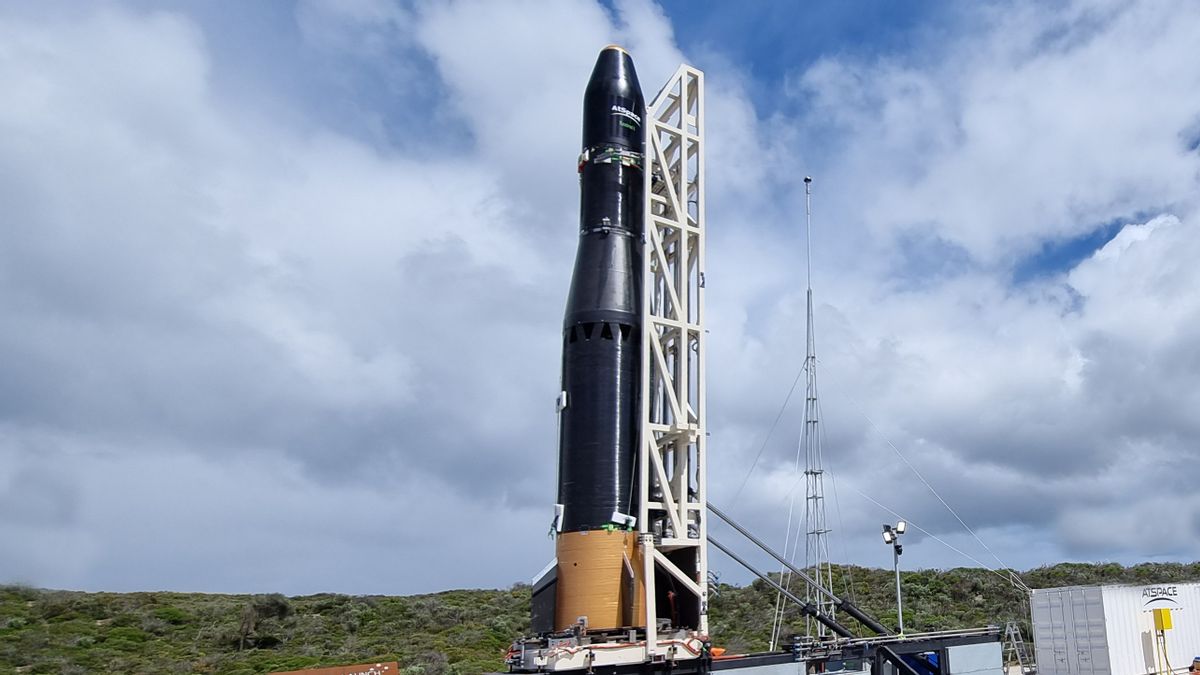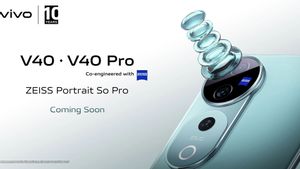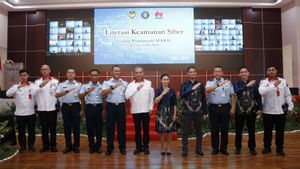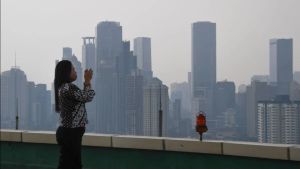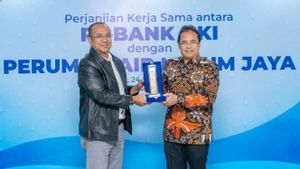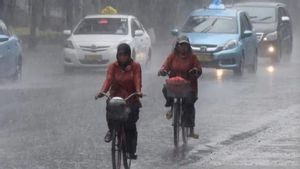JAKARTA - The Taiwanese rocket maker startup plans to become the first foreign company to launch a rocket from Japan early next year. This program, as part of a plan that industry supporters say will help Tokyo's ambitions to become a space center in Asia.
TiSpace's planned suborbital launch has faced regulatory hurdles and delays amid the question of whether Japan should embrace foreign businesses as part of its efforts to double the space industry's size of 4 trillion yen (IDR 423.1 trillion) in the next decade.
The private company, founded in 2016 by former and current officials from Taiwan's space agency, has not successfully launched a rocket. Its latest attempt to fly rockets through AtSpace's Australian brother company in 2022 failed due to an oxidator leak. The rocket to be tested in Japan is a different design.
"This (planned launch) should be an excellent case for the Japanese government," said TiSpace chairman Yen-sen Chen, quoted by VOI from Reuters. "If it goes well, then you will attract more customers from other countries."
Chen said the company was waiting for one final regulatory approval, a radio clearance that would allow the launch of the company's 12-meter (39-foot) rocket, which he hopes will occur in early 2025. The sound rocket could reach space but did not reach orbit.
Some analysts say Taiwan's rocket launch in Japan may have caught China's attention, which claims Taiwan as its territory over strong objections from the government in Taipei, and is monitoring the island's progress in missile-related technology. But so far, Chen said he had not heard any concerns.
China's Foreign Ministry said it was "not aware of the relevant circumstances" of the launch.
Japan's Cabinet Office says "economic activity and free research are guaranteed in Japan within the scope of law and regulations". An official from the Taiwanese de facto embassy in Japan met with TiSpace in March 2023 in what the embassy called a "respectful visit" but the embassy declined to comment further, saying the launch was a matter of the private sector.
TiSpace is the only Taiwanese company trying to launch a rocket. Another company founder, Wu Jong-shinn, is now the head of Taiwan's space agency. The agency declined to comment on its relationship with TiSpace and said all its launch services were carried out through public tenders.
The company's venture has gained support among Japan's space business, particularly in the remote agricultural town of Taiki, on the northern island of Hokkaido, which will host the launch. Officials and experts cited the benefits of inviting foreign companies.
Yoko Nakagawa, a member of the ruling party parliament representing Taiki and the neighboring community, said the TiSpace project was a "symbol of Taiwan-Japan friendship" and a stern wind for the international business complex which local officials called the "space Silicon Valley".
Japan wants its private space industry to be worth more than $50 billion in the early 2030s, launch 30 rockets per year, and become Asia's space transportation hub, according to the latest government plan.
Jun Kazeki, the top official to oversee Japan's space strategy at the Cabinet Office, declined to comment on TiSpace's plans. "There is a "likelihood in the future to leverage foreign transportation technology", but Japanese rockets are a priority for the government," he said.
The launch of Japanese government satellites is usually carried out by state-made rockets such as H3 from Mitsubishi Heavy Industries. Although private satellite operators often use foreign launch companies such as SpaceX and ArianeGroup outside Japan.
A senior Japanese official involved in the space sector warned that foreign companies launching orbital cargo from Japan would require strict government oversight and high regulatory hurdles.
Because the Japan Space Activity Act does not regulate the launch of sub-orbitals like TiSpace, the central government does not need to give final approval for the launch. Tokyo plans to change the law to include reusable sub-orbital and rocket flights, but revisions are expected to take years.
"LOCAL INDUSTRY"
Motoko Mizuno, an opposition lawmaker and former official at JAXA, the country's space agency, said he was cautious about Japan opening up to foreign companies, while local launchers may not be able to compete at the price.
Japan is negotiating a space technology protection agreement with the United States that could also pave the way for US commercial launches in Japan.
Although JAXA has launched domestically developed rockets for decades, the country's private rocket industry is still in its early stages.
Space One, backed by aerospace giant IHI, saw its rocket explode during its inaugural launch in March. Taiki-based Interstellar Technologies in 2019 became the first Japanese company to have sound rockets reaching space but has not yet continued with orbital launches.
SEE ALSO:
Yoshinori Odagiri, chief executive of Space Cotan, which operates Spaceport Hokkaido in Taiki, said several European companies had expressed interest in its launch complex.
Tadashi Morimitsu, a local official at the Oita prefecture in the southwest, Japan's growing space hub, partnering with US spacecraft company Sierra Space, said TiSpace's progress in Hokkaido reflects a welcome "phenomena" from the foreign space business using Japan's spaceport.
"Globally, more than 50 spaceports are under construction, but they may end up with a possibly five to 10 that are actually successful and independent in the long term", said Boston Consulting Group principal Alessio Bonucci.
If the TiSpace test launch is successful, the company says it plans to expand its manufacturing capacity in Japan to serve Japanese customers.
One of the client candidates, Letara based in Hokkaido, has asked if TiSpace can bring its satellite propulsion system into space for testing.
"We don't ask whether the company is domestic or foreign, as long as they can launch it," said Letara co-founder, Shota Hirai.
The English, Chinese, Japanese, Arabic, and French versions are automatically generated by the AI. So there may still be inaccuracies in translating, please always see Indonesian as our main language. (system supported by DigitalSiber.id)
